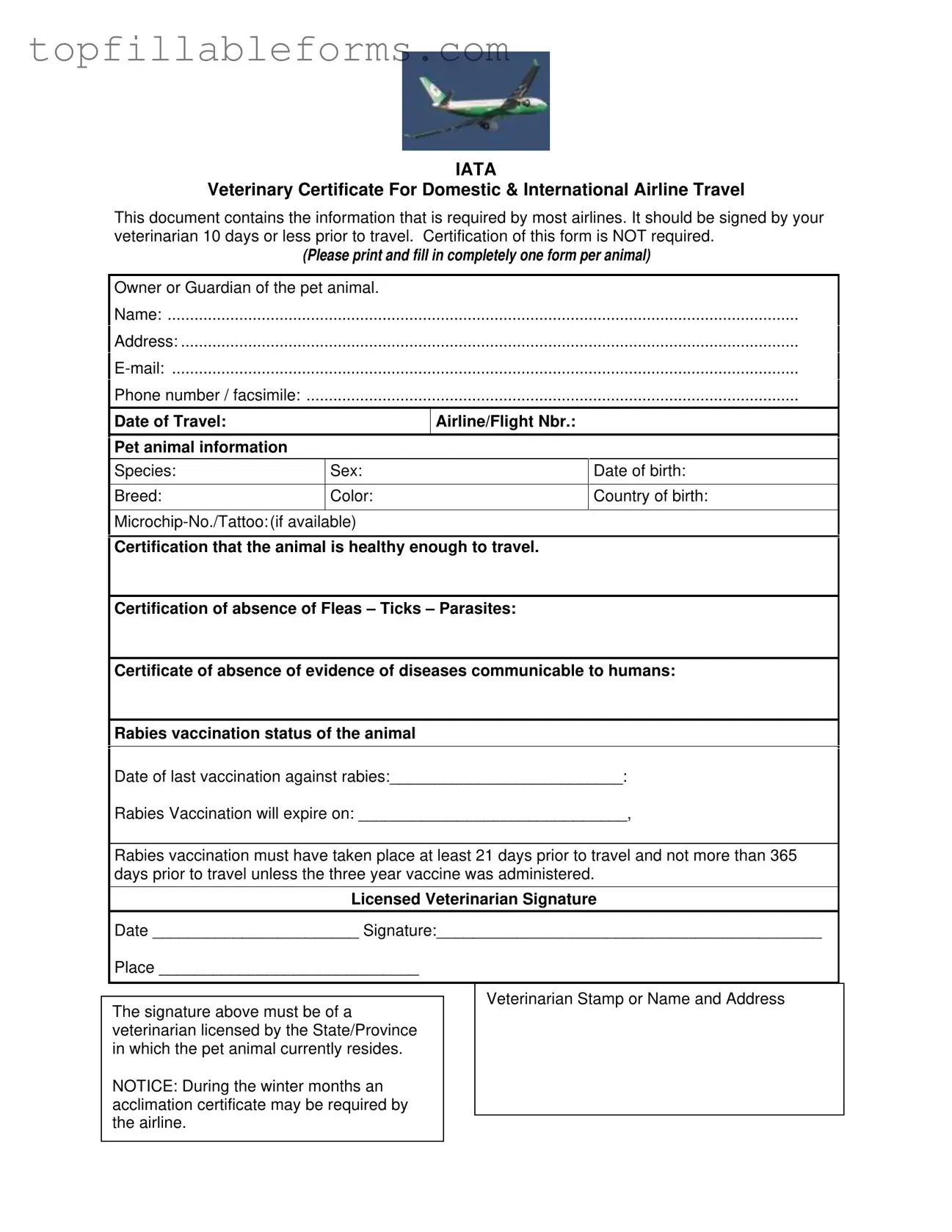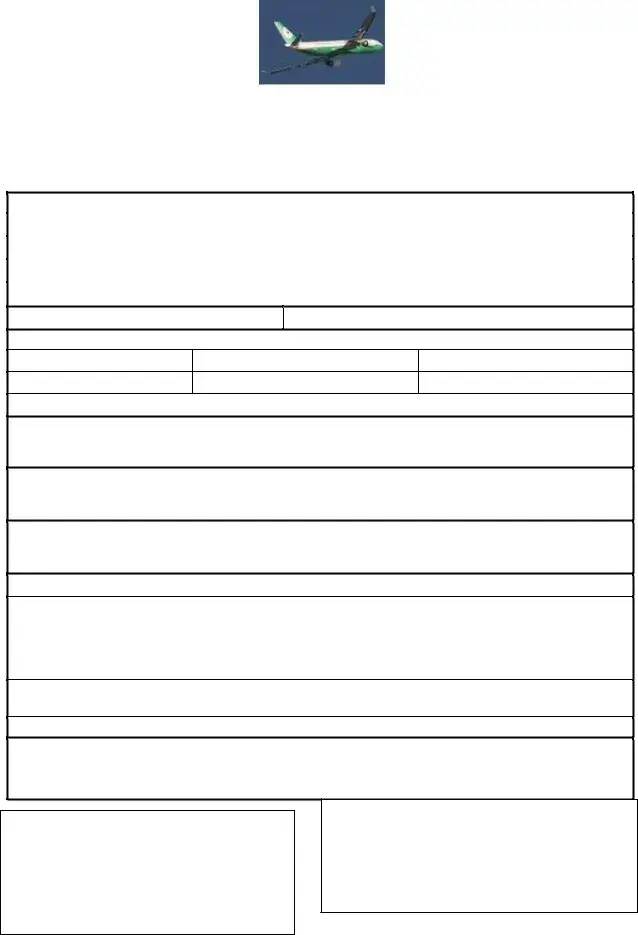Printable Veterinary Certificate Travel Form in PDF
The Veterinary Certificate Travel form is a crucial document for pet owners planning to travel with their animals, whether domestically or internationally. This form provides essential information required by most airlines and must be signed by a licensed veterinarian within ten days of travel. Although certification of the form is not mandatory, it is important to complete it thoroughly for each animal being transported.
Open Veterinary Certificate Travel Editor Here

Printable Veterinary Certificate Travel Form in PDF
Open Veterinary Certificate Travel Editor Here
Finish the form now and be done
Finish your Veterinary Certificate Travel online by editing, saving, and downloading fast.
Open Veterinary Certificate Travel Editor Here
or
▼ PDF File

